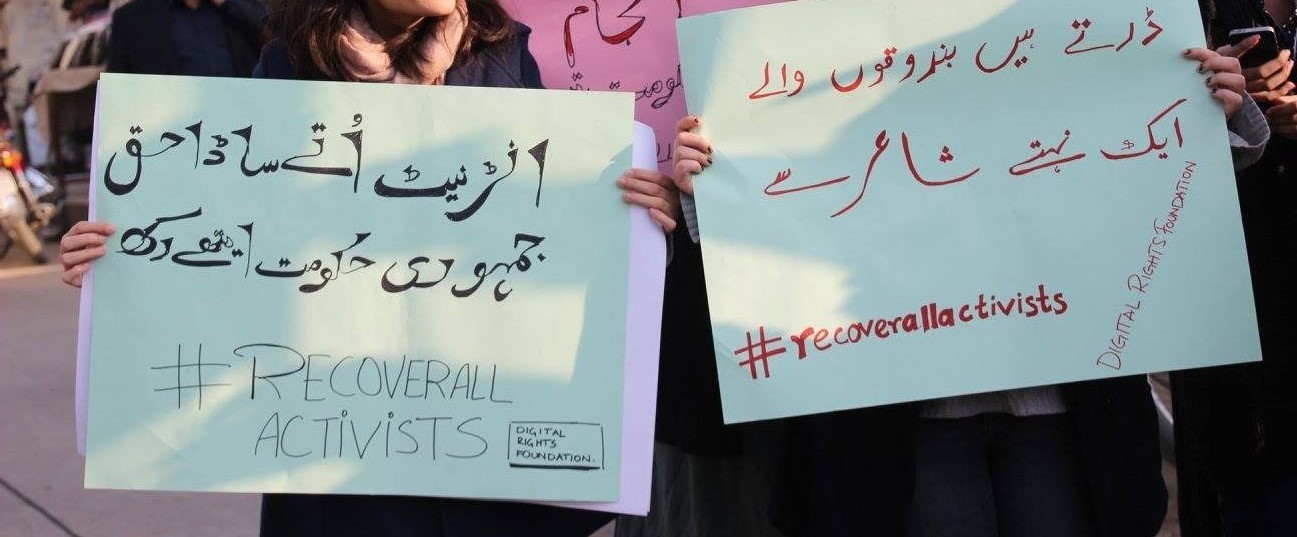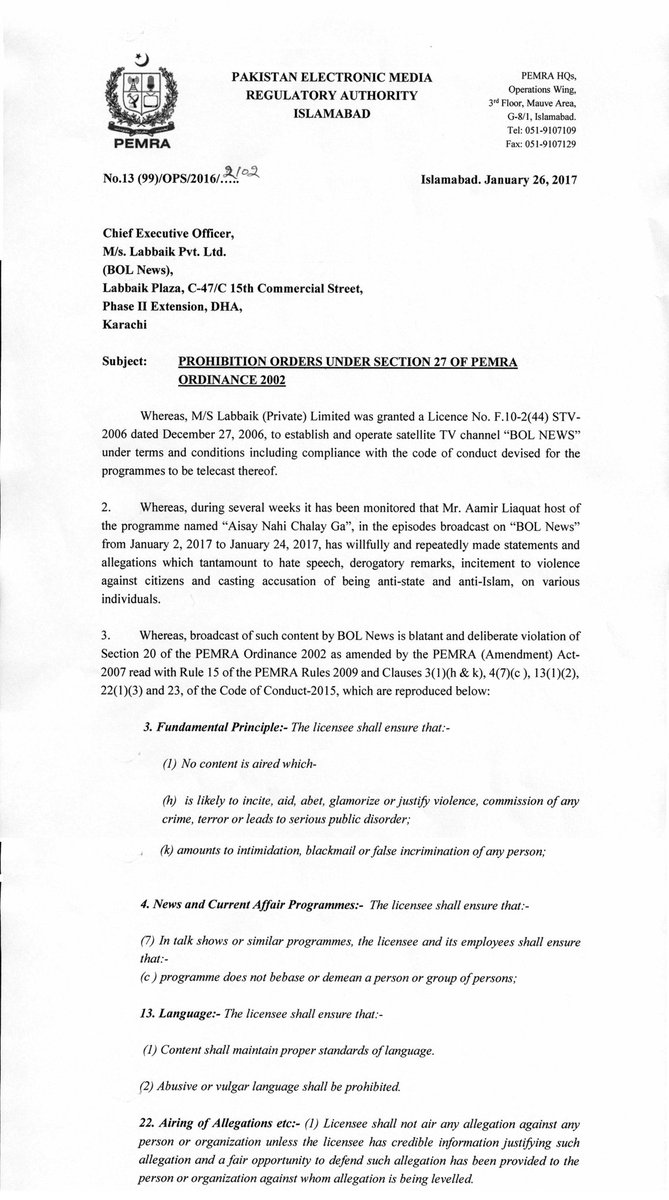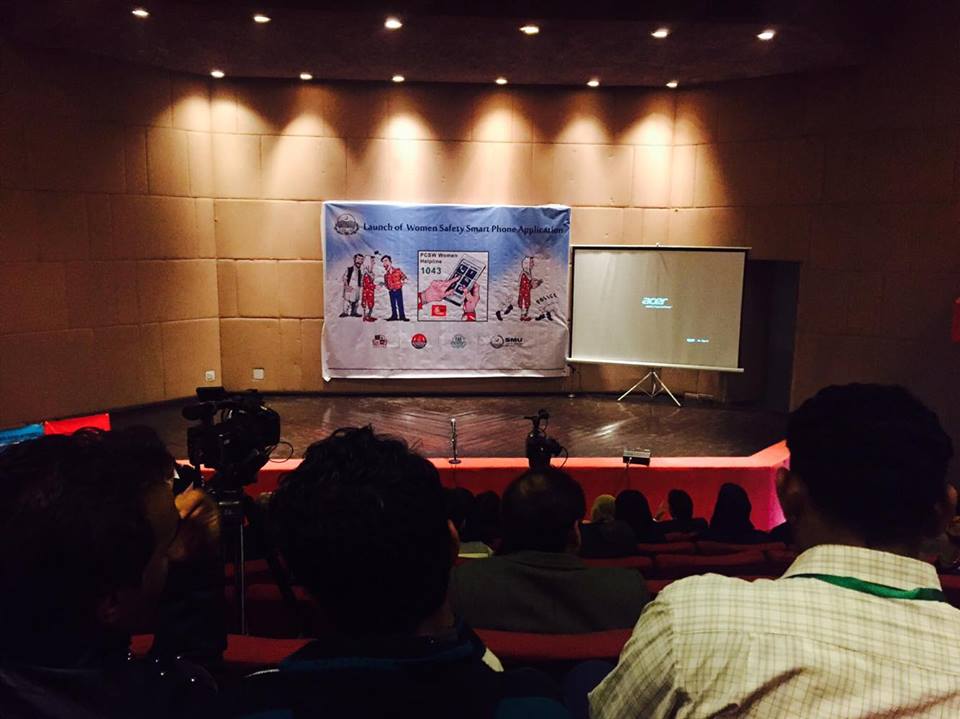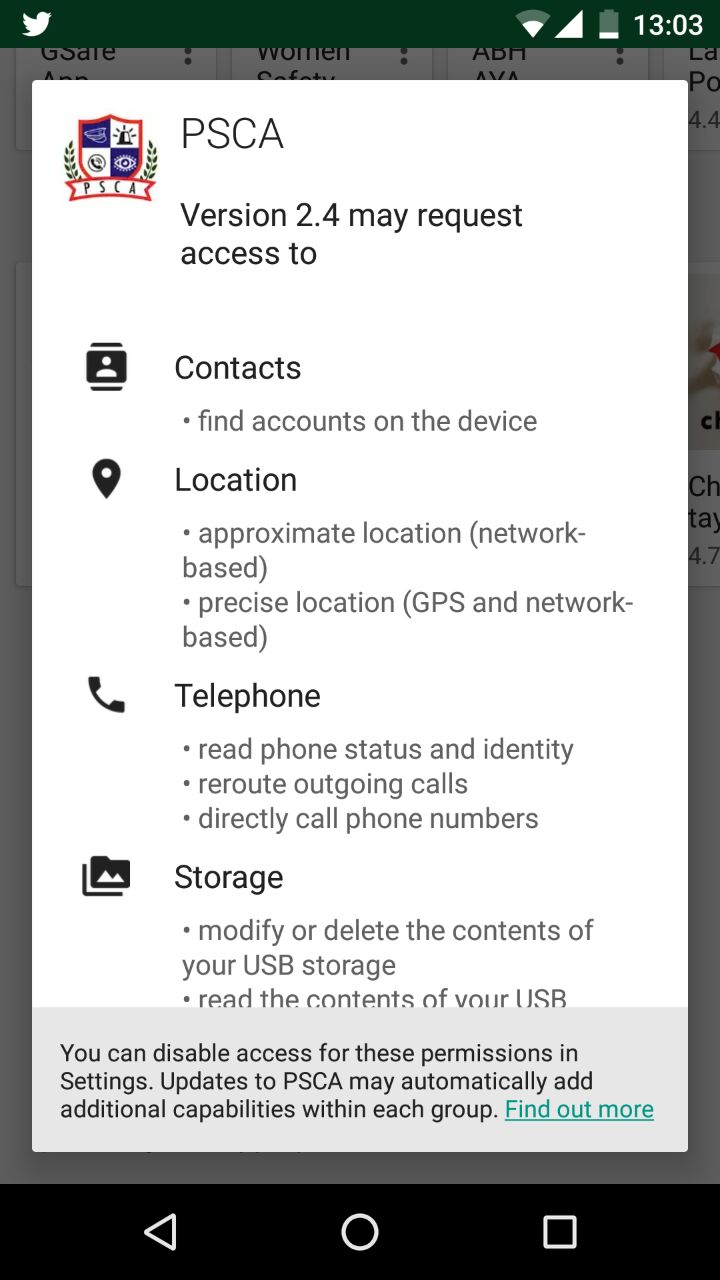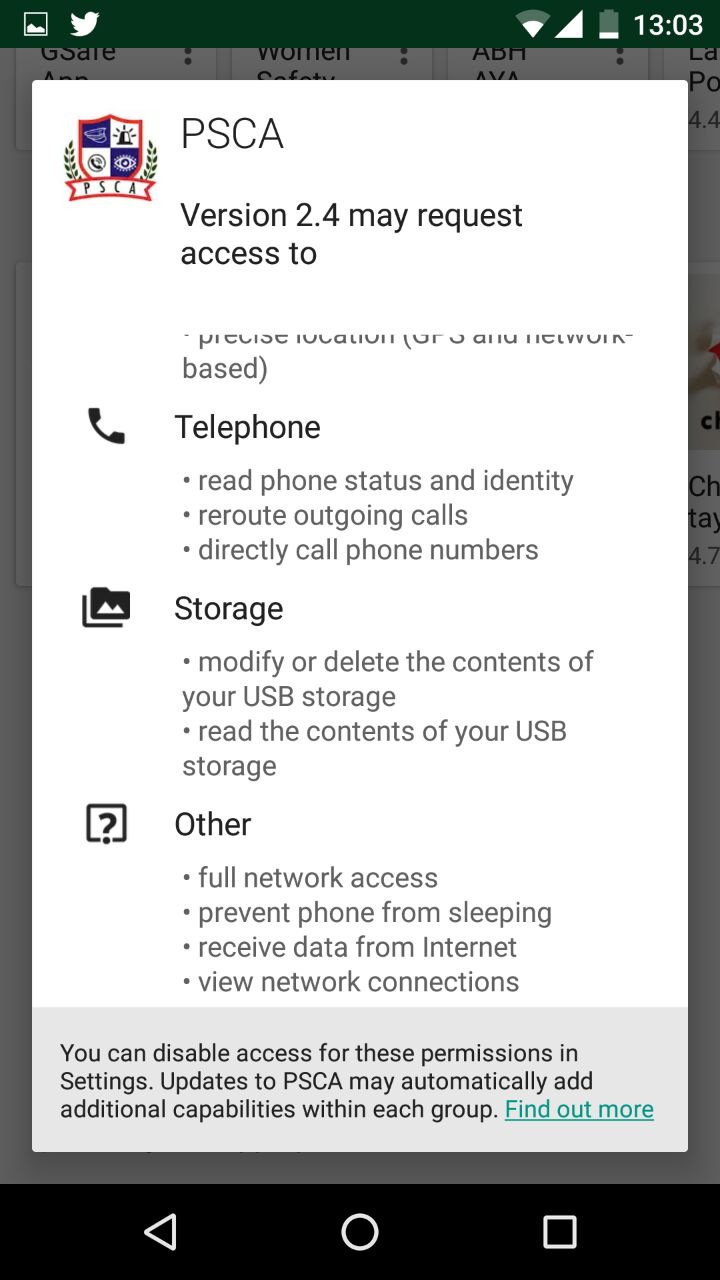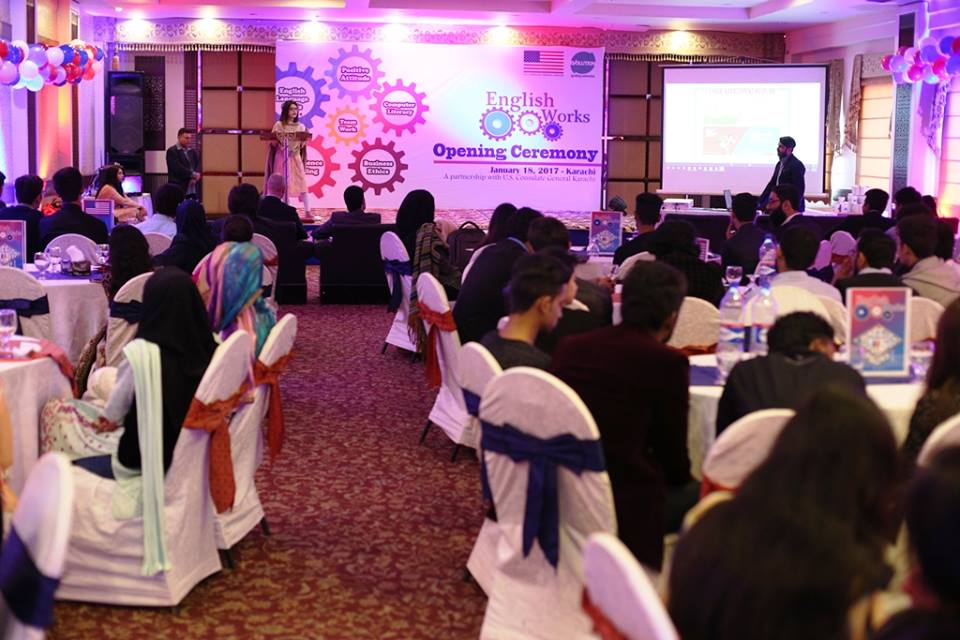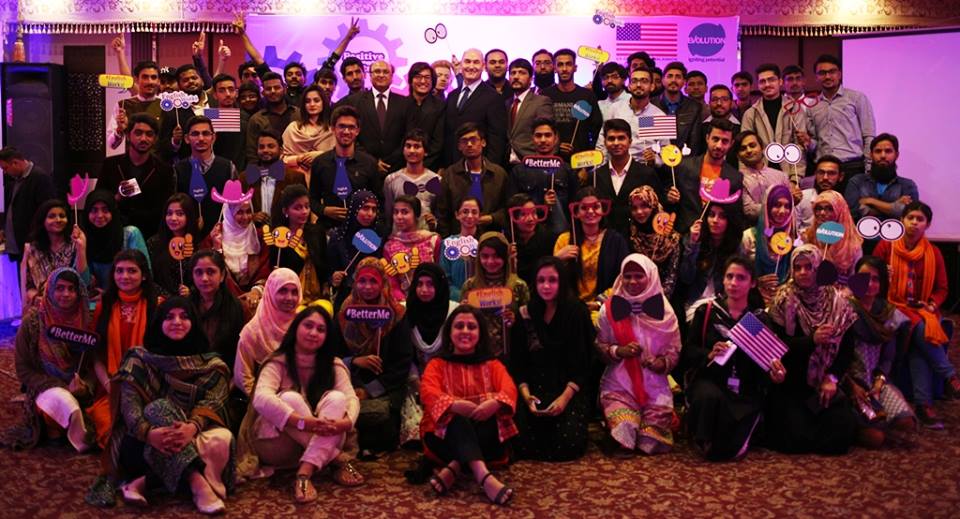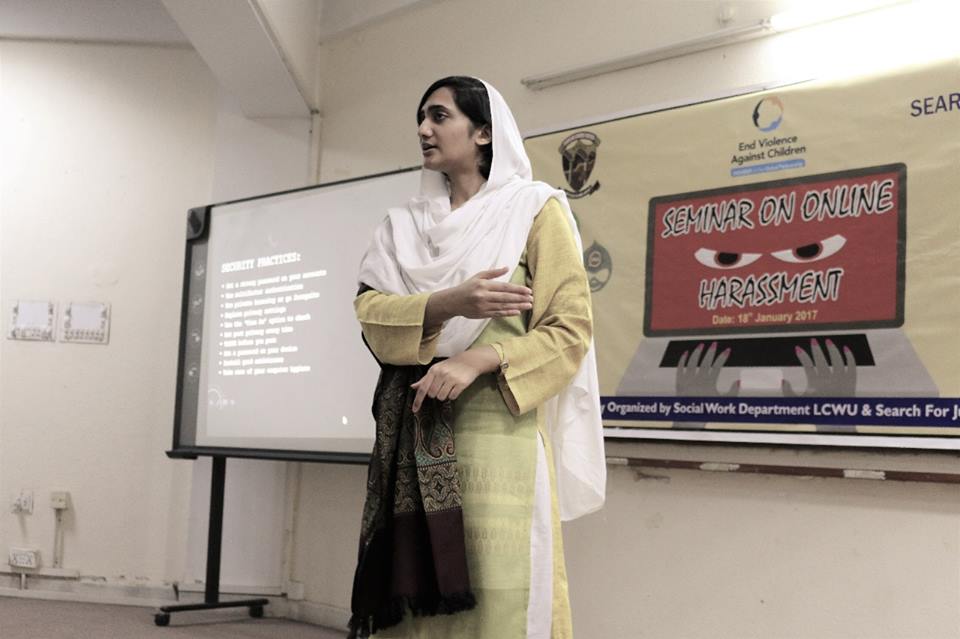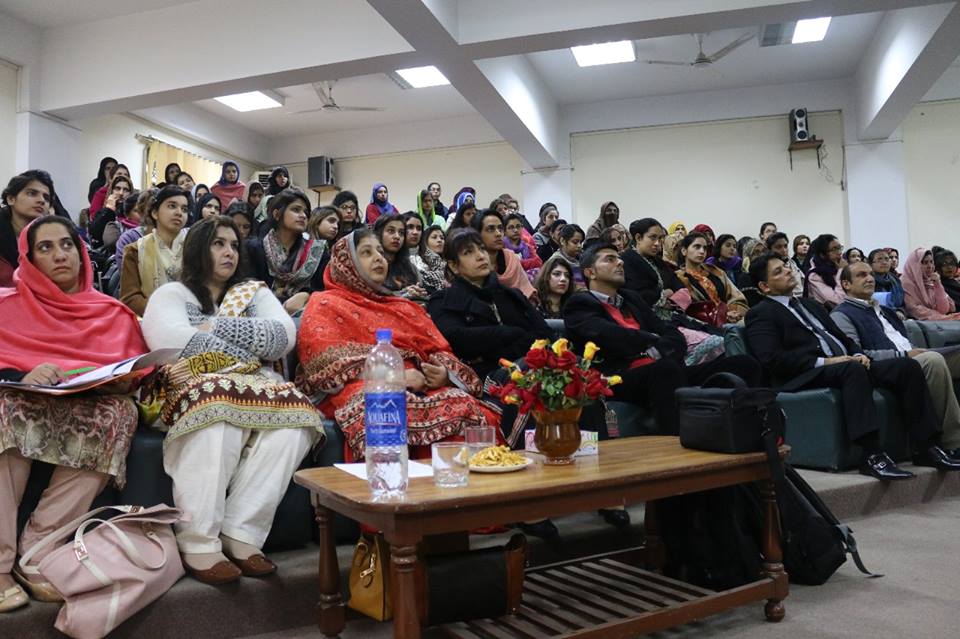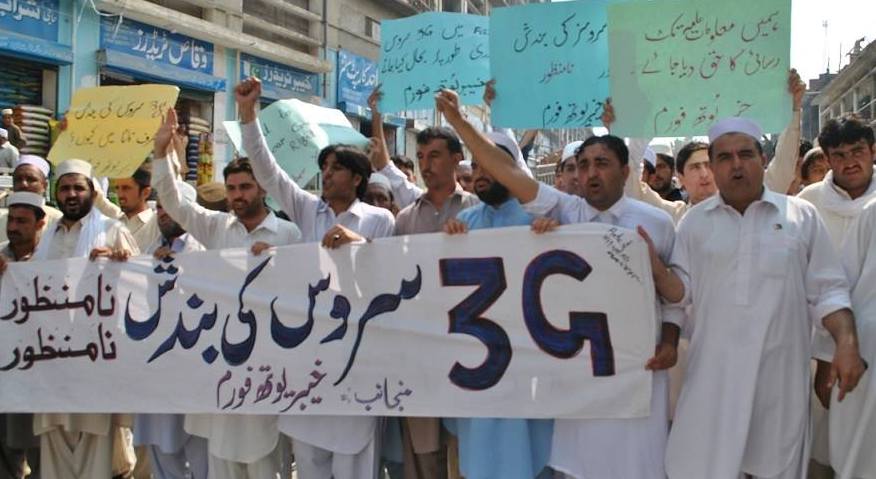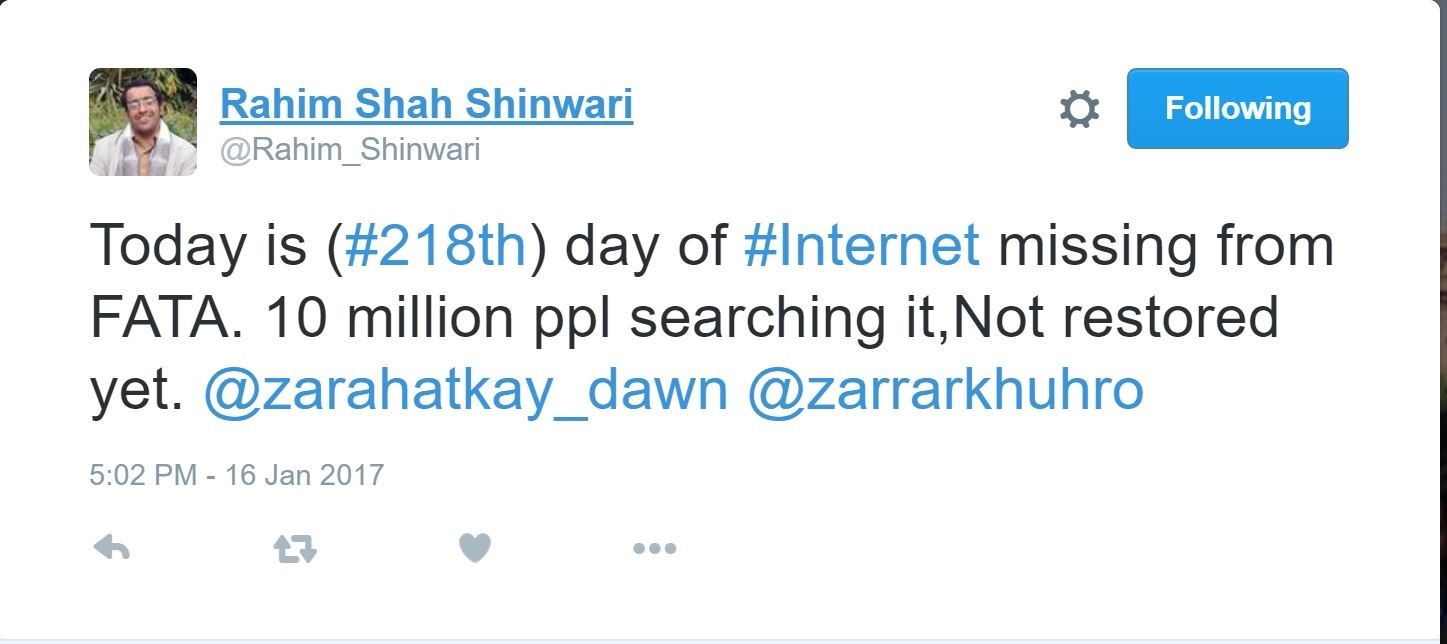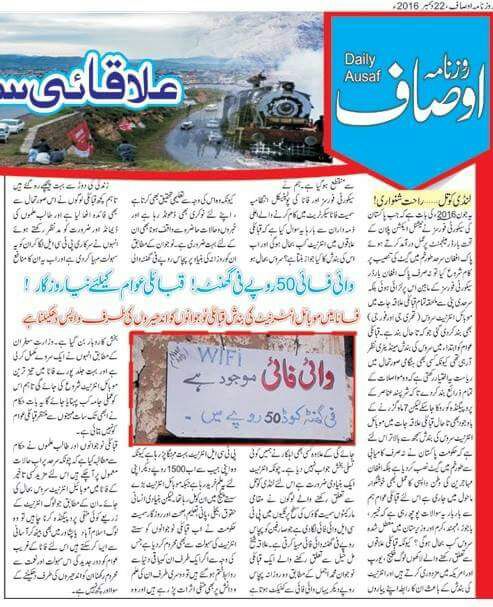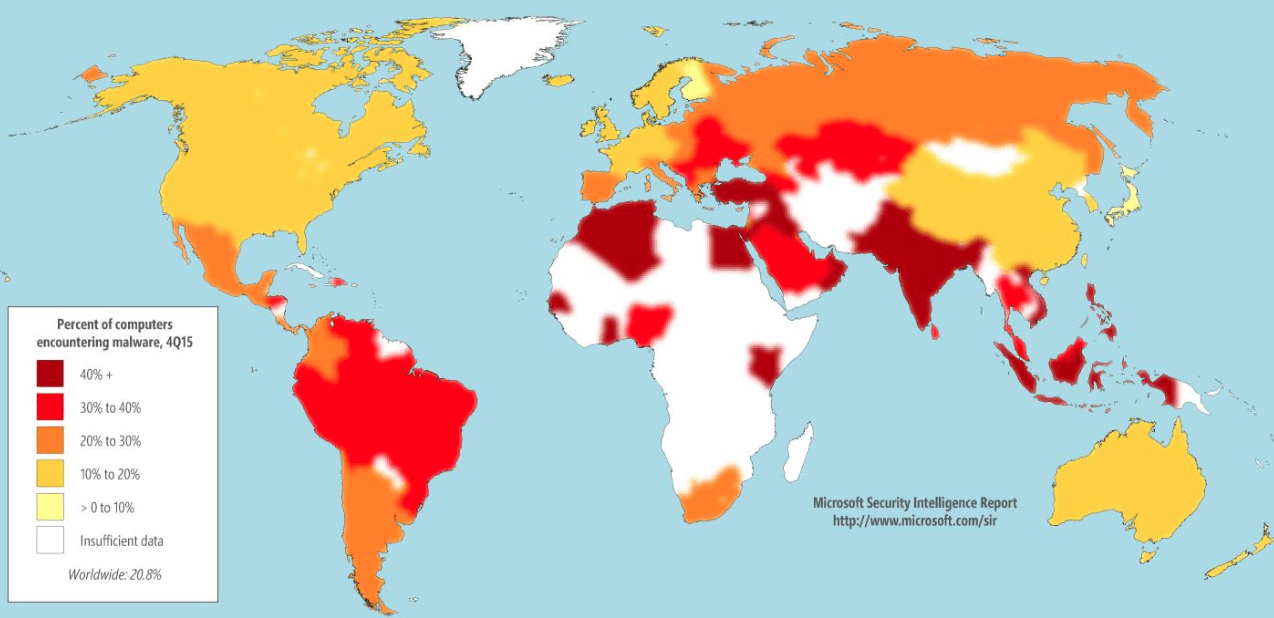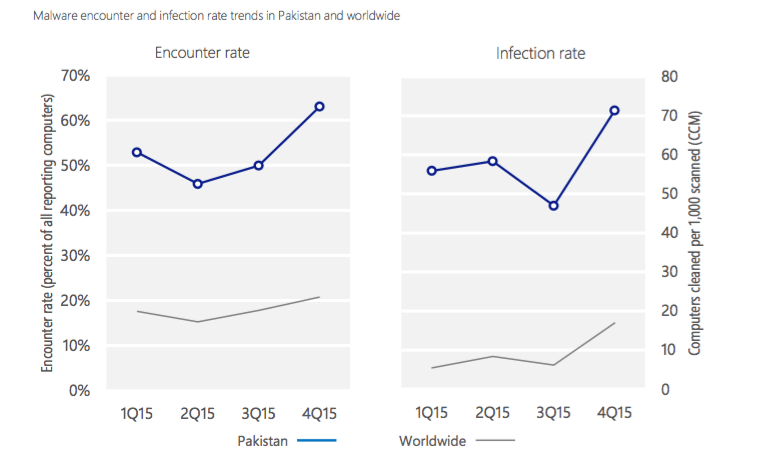February 20, 2017 - Comments Off on Social Media & “Obscenity” in Pakistan
Social Media & “Obscenity” in Pakistan
Nasir Khan Jan is a social media celebrity and v-logger who rose to fame because of his off-key covers of songs and awkward photo shoots. However on 8th February, 2017 he was arrested by the KPK Police on charges of “obscenity”.
His home was raided, and he was humiliated in front of his family and neighbours. He was subjected to the fear and distress of finding himself suddenly labelled a criminal, and grappling with the threat of judicial proceedings. It was not until his bail was posted by the admin of another Facebook page that the ordeal ended, at least for the time being. Meanwhile, another nightmare awaited him as he returned home only to find someone had photographed him while he was handcuffed in police custody and the pictures had gone viral, leading to another barrage of derogatory and mocking attacks, adding to the psychological burden of this trauma. Nasir was further told by both the detaining authorities and commenters on social media that if he wishes to avoid a repeat of the same incident, he should stop making videos in which he does “immoral” activities such as “dancing” and singing.
But who decided what constitutes obscene and immoral? The Prevention of Electronic Crimes Act (PECA) gives authorities broad powers to remove content that is against “decency or morality” (refer to section 37 of the Act) but what is the objective, legally-applicable definition of such subjective terms? It is unclear exactly which section was used to arrest Khan Jan, however section 294 of the Pakistan Penal Code could possibly have been used. Section 294 states that:
“Obscene acts and songs: Whoever, to the annoyance of others, -- (a) does any obscene act in any public place, or (b) sings, recites or utters any obscene songs, ballad or words, in or near any public place, shall be punished with imprisonment of either description for a term which may extend to three months, or with fine, or with both.”
How do we decide the limits of morality and immorality? Whose narratives of the same are imposed through the criminalisation of activities such as singing, dancing, and personal v-logging? Why are these types of content prompt punitive action while pages promoting hate speech, sectarianism, violence against women and various minorities, or increasing religious extremism are tolerated?
DRF is unequivocally against the actions taken by these law enforcement authorities supposedly at the behest of an as-yet unknown complainant and stands in support of Nasir Khan Jan as well as all digital citizens engaged in the creating content that empowers the growth of New Media. We see these actions as a clearcut part of an ongoing and disturbing pattern of criminalising, harassing, and silencing individual voices online.
Our stance is fourfold:
-
Nasir Khan Jan's arrest and subsequent events are a grievous act of cyberbullying crossing the boundary between “digital” and “physical” by permitting harassers to have their victim arrested, publicly humiliated online as well as offline, and threatened with court proceedings for posting videos that they personally found “immoral”. This sets a dangerous precedent for the extent and seriousness of cyberbullying and must not be allowed to slip by without resistance. All citizens are entitled to the same protections from the state; moral policing negates this right by making the state a stakeholder in upholding certain moral codes above others.
- The contrast between Nasir Jan’s arrest and the impunity of pages belonging to banned terrorist outfits and violent sectarian groups highlights that this is a struggle for the right to public space that is ever shrinking and that must not ceded further.
- The fact that Nasir’s privacy was further compromised and his leaked pictures continued to force him to relive this event even though he was granted bail, and even though his “alleged crime” was in the nebulous and legally ill-defined territory of “obscenity”, and despite the fact that in the eyes of the law we are all deemed innocent until proven guilty. This infers that the government of Pakistan is not adequately equipped to handle arrested suspects’ right to privacy while in police custody. It also points towards a lack of sufficient oversight on part of the state to ensure the responsible implementation of its own laws. This casts a shadow over its commitment to uphold the digital safety and rights of its citizens, ostensibly one of the primary reasons why the PECA was passed.
- The members of the law enforcement authority that supposedly received this complaint also decided Nasir Khan Jan was guilty, and enacted punishment accordingly. This is a gross violation of human rights as well as digital rights. It cannot and must not be tolerated at any cost.
Nasir Khan Jan ’s arrest represents a violent escalation of threats to citizens’ post-PECA’ digital rights in an increasingly interconnected world. It raises deep issues of the breaking divide between “online” and “offline” and shows us clearly how non-normative personalities, presentations, and people are disproportionately at risk from not only online vigilantes but also organs of the state.

